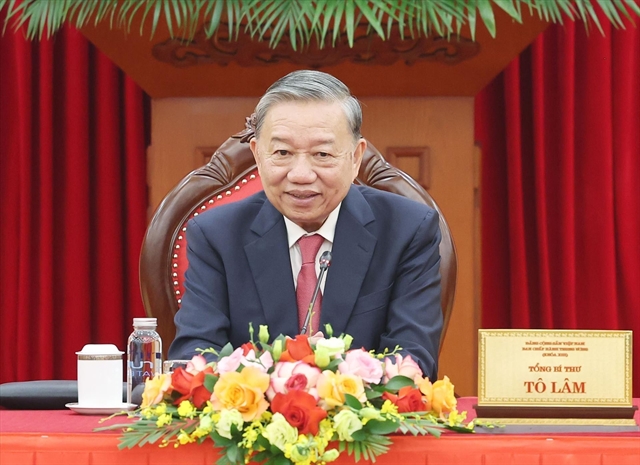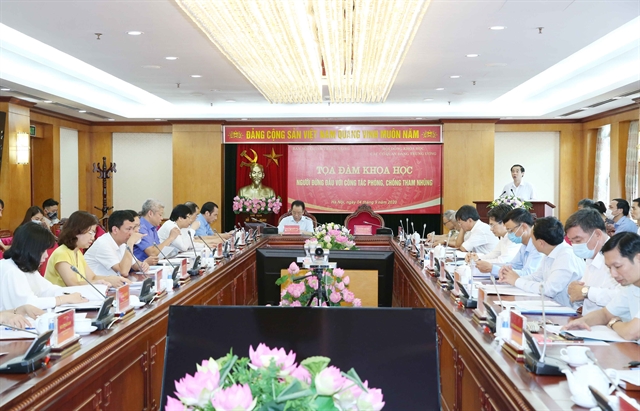 Politics & Law
Politics & Law


|
| A seminar on promoting the role of leaders in the fight against corruption was held in Hà Nội Friday morning. — VNA/VNS Photo Phương Hoa |
HÀ NỘI — Leaders’ commitment and example-setting are critical factors that decide the success of anti-corruption efforts, a political scientist has said.
Nguyễn Thái Học, the vice-chair of the scientific council of the Commission for Internal Affairs of the Party Central Committee, made the statement on Friday during a seminar on anti-corruption theories and practices in Hà Nội.
While noting that the anti-corruption fight has been intensified in recent times, Học pointed out that in many localities and organisations, the performance has been limping – much of which can be attributed to the lethargic attitude of the leaders of these localities and organisations.
“They have not been forceful enough in dealing with corruption. Passing the blame or turning a blind eye to avoid conflicts can be observed, and in many cases, they even covered up or aided and abetted in corruption activities,” Học said at the seminar.
Five years of implementation of Politburo Directive 50-CT/TW on strengthening the Party's leadership in the detection and handling of corruption cases show that, from 2016, 1,121 cases were discovered and 2,473 people accused of corruption.
Out of these, only 38 cases involving 44 people with violations related to corruption were discovered through internal inspection and supervision, Học cited a report, stressing that internal inspection’s findings “do not reflect the actual state of the corruption.”
The number of leaders that were disciplined as a result of corruption through the years – 140 people were recommended to be disciplined amd 82 were actually disciplined, while eight were criminally charged – is not commensurate to the number of cases discovered, Học said, calling for measures to correct the situation and promote the role and responsibility of leaders in anti-corruption.
Dr Cẩm Thị Lai from the Hồ Chí Minh National Academy of Politics said given that the Party exercises comprehensive rule over the country’s political systems, Party cells in organisations and localities should be the “key player” in combating and preventing corruption, especially when the “corruption actors” were mostly Party members who hold high positions in State organisations.
It is necessary to reinforce the duty of Party committees, Party organisations and leaders in the prevention and fight against corruption, bureaucracy and wastefulness, Lai said, adding that these “evils” are often associated with each other and are a consequence of one another.
The measures to tackle these issues must be carried out simultaneously and in sync, she said.
Dr Nhị Lê shared Lai’s opinion, saying that wastefulness is a “bulwark for corruption to fester and rear its ugly head.”
Fighting corruption without fighting waste is only a half-measure, he said. — VNS